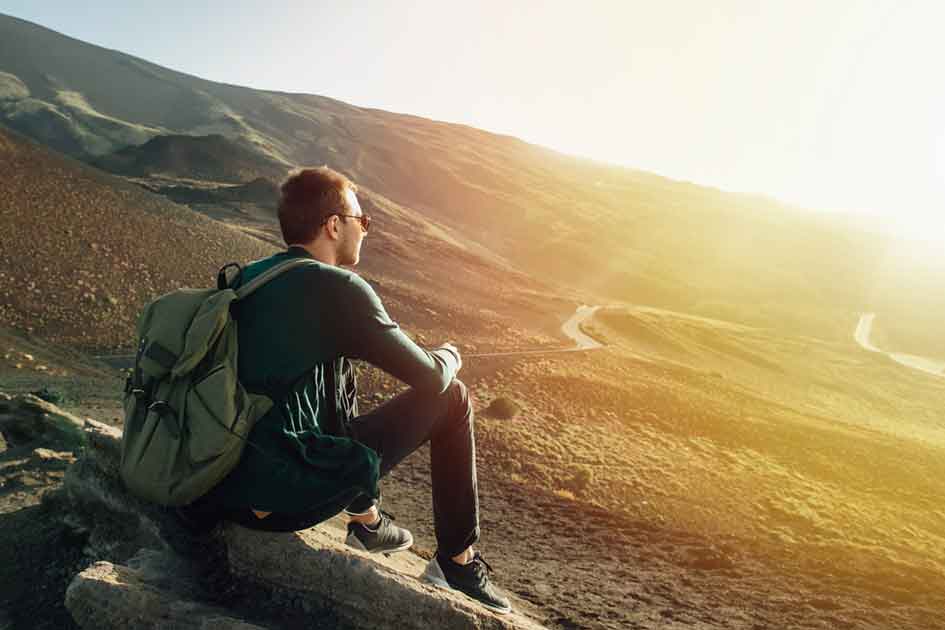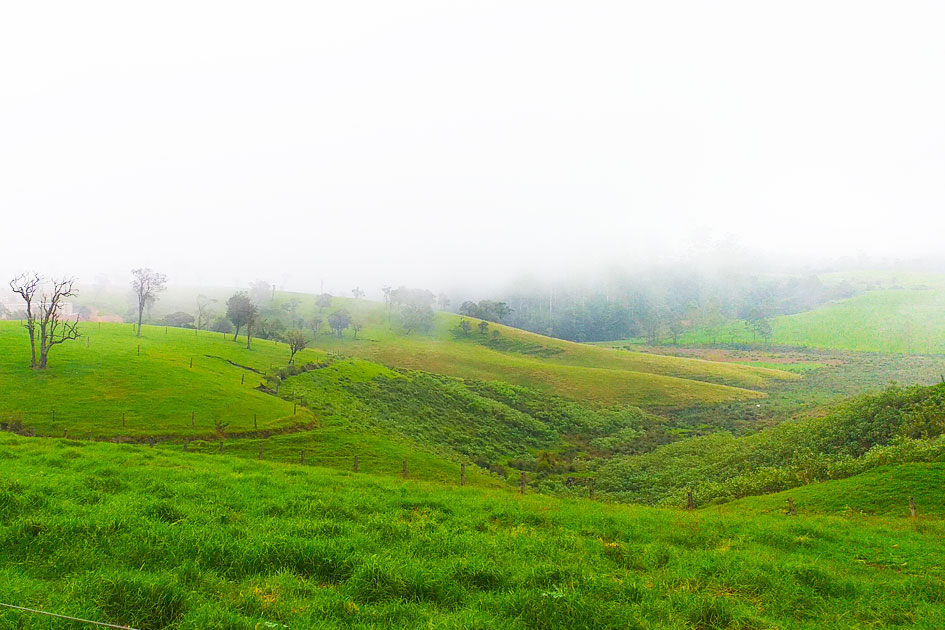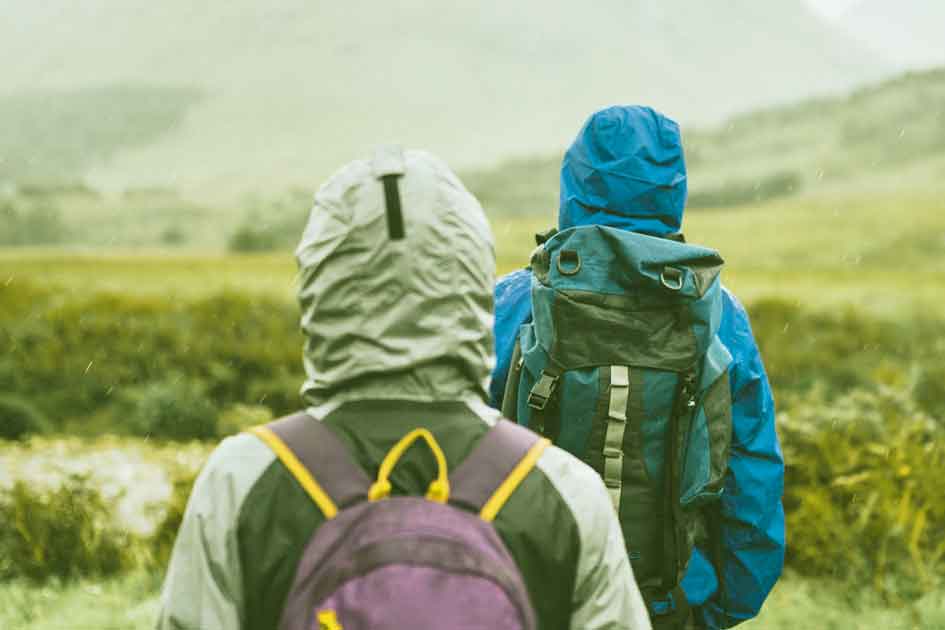Why Hiking is Good for you?
Hiking in nature is beneficial not just to our physical, but also to our moods, brains, and relationships.
I'm a hiker who was "born to hike." It's excellent for my heart and soul to put on a pack and go for a trial, especially when I'm alone and can let my thoughts roam anywhere it wants.
According to studies, the hiking experience is one-of-a-kind, providing advantages that go beyond what you get from regular exercise. It not only oxygenates your heart, but it also helps maintain your intellect bright, your body tranquil, your creativity alive, and your relationships happy. And, if you're like me and live near forests where you can go for a hike amid the trees, even better: Evidence shows that being in the presence of trees may give additional advantages, maybe due to particular organic chemicals that trees exhale that improve our mood and overall psychological well-being.
Hiking in nature is so useful for our wellbeing and prosperity that a few specialists are endorsing it notwithstanding other illness medicines. According to one group of experts, “the synergistic impact of physical exercise and time spent in nature makes hiking a perfect activity for increasing overall health and wellness.”
Here's what research has to say about hiking's advantages.
01. Hiking sharpens the intellect more than many other types of exercise.
As a professional writer, it may be difficult to justify taking time out of my day to go hiking. However, research shows that hiking not only feels wonderful but may also maintain my brain in excellent health.
All forms of exercise are beneficial to our health. Getting your heart rate up and working out your lungs, whether on an elliptical trainer, a stationary bike, or a treadmill, keeps you feeling younger and stronger. Exercise also benefits your brain since it increases oxygenation.
Hiking, on the other hand, includes something that many other types of exercise do not: paths. That is, it necessitates managing a reality that is not entirely predictable. Slippery ground, overhanging branches, and concealed obstructions, trail signs, and wild animals in your path—all of these things need micro-and macro-adjustments to your route, which is excellent for your brain.
02. Hiking promotes happiness and tranquility.
Exercise, in general, maybe an excellent stress reliever. But what distinguishes hiking from other types of exercise is that it is done outside in a natural setting. Other physical activities that rely on nature, such as river rafting or hiking, take more time and commitment than a simple trek and are thus less accessible to many people. Hiking may take place practically anyplace, from a metropolitan park or public garden to a mountain trek, and will provide you with the necessary dosage of nature to keep you happy.
The benefits of exercising in nature have been thoroughly researched. Strolling in natural places, as opposed to walking in a cityscape or along a road, has been shown in studies to help us recover from "attention overload"—the mental weariness that results from living and working in a society where computers and cell phones are a constant distraction.
Being in nature is also relaxing, and studies have shown that individuals who spend time walking in nature are less nervous and have less rumination (thinking about the same problems or regrets over and over), which may help guard against depression.
While it is unclear why nature delivers these psychological benefits, researcher Craig Anderson and others have shown that being in nature promotes feelings of awe—a state of amazement combined with a sensation of being tiny in the midst of something larger than yourself. Awe is a powerful feeling with several advantages, including elevating your mood and making you feel more giving.
03. Hiking improves your relationships.
Hiking is obviously beneficial to our physical and emotional well-being. However, there is increasing evidence that it benefits our interpersonal connections as well.
One explanation is that a large number of us climb with others, and practicing together can create uncommon sensations of closeness—and a feeling of wellbeing. I'm certain when a companion of mine as of late fell on a path and seriously cracked her lower leg, she was happy to have an organization to assist her limp with bringing down the mountain for help. Be that as it may, even in less desperate conditions, having a companion along can be a dazzling method to interface with someone else in a liberating of different interruptions.
As per autonomous raters, mothers and girls who went through 20 minutes walking around an arboretum (instead of a shopping center) not just showed more noteworthy consideration during an intellectual test yet, in addition, would be wise to associations with one another. They showed increased connectedness and pleasant feelings, as well as less negative emotions, after strolling in the natural setting. Another study indicates that spending time in nature might improve our relationships by making us more empathic, helpful, and generous.
What about hiking by yourself? Personally, I've found that hiking alone benefits me in my relationships for all of the reasons stated above—it relieves tension, replenishes my exhausting attention, and generates wonder. And when I'm feeling well, it rubs off on my interactions with people once I get home from the trek.
It may be refreshing for anyone who spends a lot of time caring for others to let go of that duty for a while and go hiking. After all, taking a vacation can't but revitalize you, making you more emotionally open to people thereafter.
04. Hiking can help us become more creative.
I'm sure I'm not the only one who finds that taking walks in nature allows my thoughts to travel freely in creative areas. In reality, I've composed several of my songs while hiking on a path, with lyric ideas coming out from some unconscious area while I'm not thinking consciously.
Though we frequently hear about philosophers or artists who found creative inspiration in natural settings, research is just now beginning to study the links between being in nature and creativity.
Some researchers feel that the benefits for creativity stem from how natural surroundings enable our focus to relax and our brains to wander in ways that might help us link different ideas that are swimming about in our heads. Others argue that the openness and unpredictability of natural scenery foster creativity. Whatever the case, if being in nature improves creativity, which is linked to well-being, creative types could benefit from spending a bit extra time on a path.
05. Hiking aids in the development of positive interaction with the natural environment.
Hiking, in addition to being beneficial to our health, may also benefit the environment. After all, if we have the stamina to go places and cover greater distances, we may lessen our reliance on automobiles and so lower our carbon impact.
Hiking also indirectly improves the environment by increasing our connection to nature. Having a favorable relationship with the natural environment can help us care about its destiny, which can lead to a greater commitment to conservation activities. According to one research, when we have a personal connection to nature, we are more inclined to wish to conserve it. That means that outdoor activities, such as hiking, may benefit both individuals and the environment.
The entirety of this recommends that climbing might be one of the best approaches to practice your body, and I have committed once again to climbing consistently in the new year. Instead of spending the entire day in front of a computer, I'm taking 15 minutes every day to go outside. And I'm certainly experiencing benefits in my mood, creativity, and relationships, as well as a deeper spiritual connection to nature.
So, take a water bottle, a backpack, and, if desired, a companion, and hit the trail. You will not be sorry.






